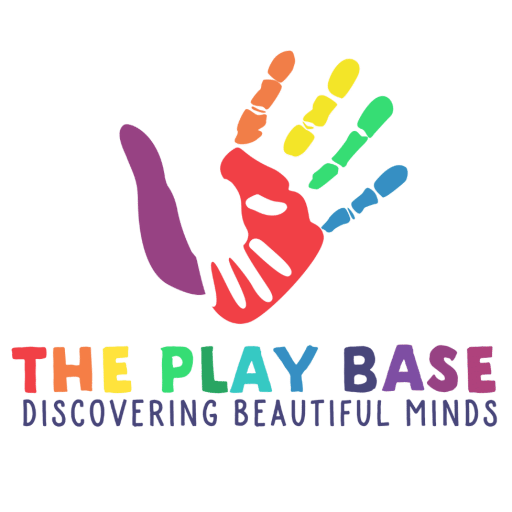Managing emotions can be difficult for many children, especially those with autism. Emotional regulation is the ability to recognize, understand, and manage feelings in healthy ways. Applied Behavior Analysis (ABA) therapy offers practical tools to help children build coping mechanisms, self-control strategies, and stronger behavior management skills. With the right support, children can learn how to handle stress, frustration, and big emotions in everyday life.
ABA Therapy for Emotional Regulation | Building Coping Mechanisms
ABA therapy emotional regulation programs focus on teaching children how to calm themselves during overwhelming situations. Through structured sessions, therapists break down emotional skills into small, achievable steps. Children may learn to:
- Identify feelings such as anger, sadness, or excitement
- Use coping mechanisms like deep breathing or asking for help
- Replace outbursts with more positive behaviors
As Frances Fishman, founder of The Play Base, explains: “When children have the right coping strategies, they begin to feel more in control. That sense of control is what helps them grow in confidence and independence.”
Self-Control Strategies with ABA Therapy | Supporting Emotional Growth
Developing self-control takes time and practice. ABA therapy provides clear systems of reinforcement, helping children understand the benefits of positive actions. Common self-control strategies taught include:
- Waiting for a turn before speaking or playing
- Using words or signs instead of aggression
- Practicing pause techniques when upset
Therapists model these behaviors, then guide children through real-life practice. Over time, these strategies become habits, improving both emotional regulation and social interactions.
Emotional Regulation in Autism | How ABA Therapy Helps
For children with autism, emotional regulation can be particularly challenging. Sensory overload, communication barriers, or sudden changes in routine may trigger strong reactions. ABA therapy for emotional skills development helps children manage these triggers by:
- Creating structured environments with clear expectations
- Teaching predictable routines that reduce stress
- Providing personalized emotional regulation treatment ABA plans
This individualized approach ensures children receive support tailored to their unique needs.
Coping Mechanisms Through ABA Therapy | Behavior Management Made Simple
Learning coping mechanisms is central to emotional growth. ABA therapy coping skills training often includes:
- Breathing exercises
- Using fidget tools for focus
- Practicing relaxation techniques
- Learning safe spaces to go when upset
Parents often see improvement not only in therapy but also at home, school, and in the community. As Frances Fishman notes: “When families and therapists work together on coping skills, children learn faster and apply them in different settings.”
ABA Therapy Emotional Regulation Techniques | Step-by-Step Support
Therapists use evidence-based methods to teach emotional skills step by step. Techniques may include:
- Role-playing emotional situations
- Visual charts to recognize emotions
- Reward systems for calm responses
- Gradual exposure to challenging scenarios
This hands-on approach gives children the tools to practice and master new emotional regulation skills in safe, supportive environments.
How ABA Therapy Improves Behavior Management & Self-Control
Strong emotional regulation supports better overall behavior management. ABA therapy sessions for behavior management often connect emotional control with positive daily routines, such as:
- Following classroom rules
- Cooperating with peers
- Staying calm during transitions
When children learn to manage emotions, they are less likely to engage in disruptive behaviors, making learning and socializing easier.
Emotional Regulation Skills with ABA Therapy | What Parents Should Know
Parents play a big role in reinforcing skills outside of therapy. Families are encouraged to:
- Practice coping mechanisms at home
- Provide consistent reinforcement
- Model calm behavior during stressful times
Frances Fishman emphasizes: “Consistency is key. When parents and therapists work together, children gain the emotional tools they need for lifelong success.”
ABA Therapy and Coping Mechanisms | Helping Children Manage Emotions
ABA therapy behavior management support is not just about reducing negative behaviors. It’s about teaching children positive ways to express feelings. Coping mechanisms help children:
- Build stronger relationships
- Improve focus at school
- Gain independence in daily life
With practice, these strategies create long-lasting improvements.
Emotional Growth Through ABA Therapy | Effective Behavior Strategies
The long-term goal of ABA therapy emotional regulation programs is emotional growth. Over time, children learn to manage feelings, improve self-control, and handle challenges with resilience. This growth supports better communication, stronger social skills, and a more positive outlook.
At The Play Base, we specialize in ABA therapy emotional regulation programs designed to give children the skills they need to thrive. If you’re searching for emotional regulation ABA therapy near me or want to explore ABA therapy coping skills training, our team is here to help your family every step of the way. Book your consultation with The Play Base today to learn how ABA therapy can support your child’s emotional growth.









